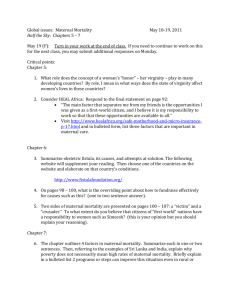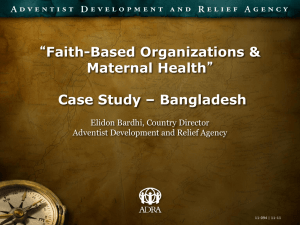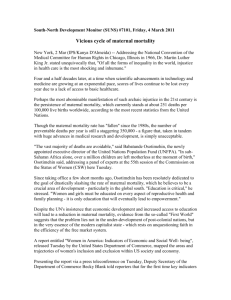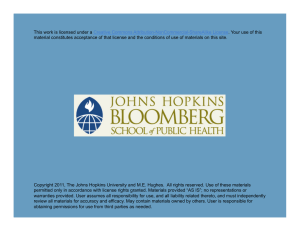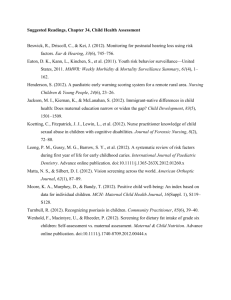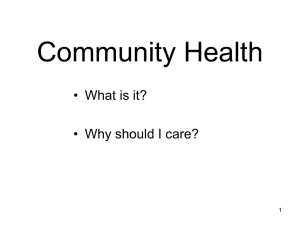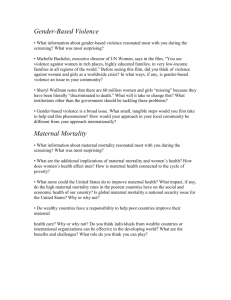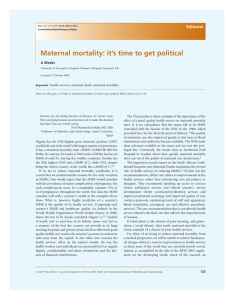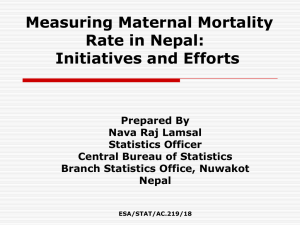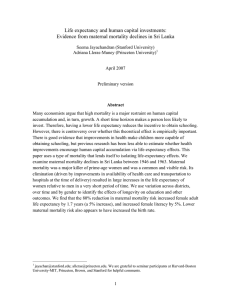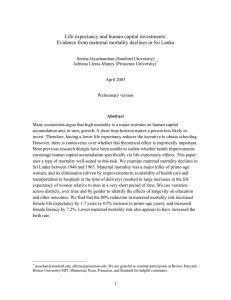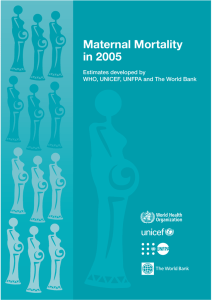Section D Shared Vision
advertisement
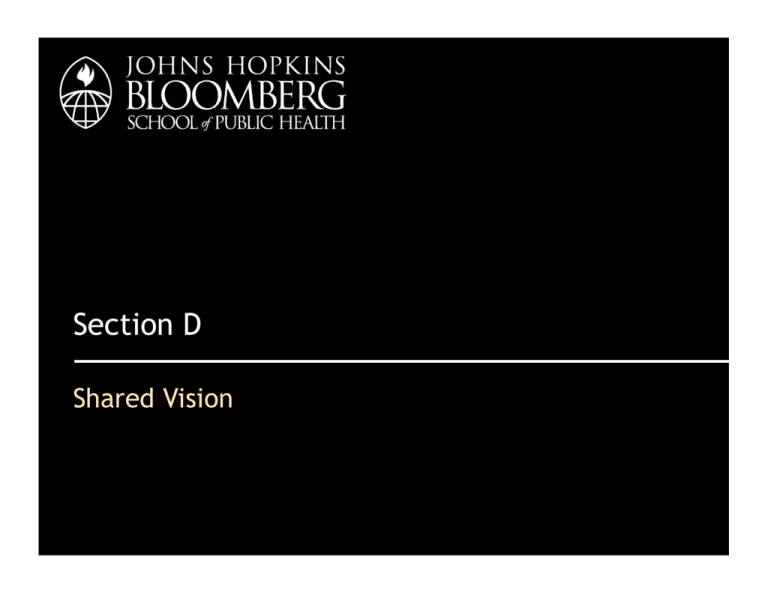
Section D Shared Vision Team Works! 2 Team Learning: STAR Question ! How can we align everyone to learn together how to reach a shared vision? 3 Leadership the New Way – “Learning Organization” Strategy 4 Health System Development – “Learning Organization” Strategy 5 1. Learning to Fit Demand expression Decision process ! The task—learning how to engage all stakeholders in a creative partnership with shared values that will generate a shared vision leading to policies, strategies, and cooperative programs that will promote and support the household production of health 6 Engaging Stakeholders in a Shared Vision for a Health Future that Everyone Desires ! Are families, the primary producers of health, engaged by government in shaping the national health vision? 7 Millennium Development Goals: ! Reduce maternal mortality by 75% between 1990 and 2015 8 Reducing Maternal Mortality—Vision Shared by Whom? ! Donors and governments— Reduce MMR* by 3% a year (75% in 25 years) - *MMR = Maternal Mortality Ratio, generally expressed as maternal deaths per 100,000 live births 9 Maternal Mortality ! Let’s ask a pregnant woman’s husband: “How much maternal mortality would you like?” 10 Community ! Let’s ask the community: How much maternal mortality would you like? 11 Vision Shared by Whom? ! Donors and governments—reduce MMR by 3% a year ! Households—zero MMR ! Communities—zero MMR 12 Maternal Mortality - Blueprint Project: Can the Community Participate Here? ! Strategic objective: Reduce MMR by 15% in 5 years from 500/100,000 to 425/100,000 13 Maternal Mortality – Action Learning: Can the Community Participate Here? ! Vision—no mother dies from childbirth in our community! 14 Health System Development – “Learning Organization” Strategy 15 2. Learning to Fit Distinctive competencies Task requirements ! The task—learning how to change the organizational culture so it can develop the competencies to do the tasks required to design, implement, and be accountable for programs that promote the household production of health 16 * Reducing Maternal Mortality ! CHPS = Community-based Health Planning and Services ! *Nkwanta District is in rural east-central Ghana 17 CHPS 18 Introduction 19 Results of Engaging the Households and Communities 20 CHPS 21 Health System Development – “Learning Organization” Strategy 22 3. Learning to Fit Needs Outputs ! The task—learning how to understand the household’s needs and constraints, and how to introduce new values, practices, knowledge, skills, and technologies to help households/ mothers become more resourceful in the production of health 23 King’s Medical Centre ! Starting in 2006, the King’s Medical Centre has grown to become a centre of excellence! ! The Centre is based in a rural area of Northern Ghana near the city of Tamale Dr James Duah. The King's Medical Centre. 24 Malnutrition, Culture, and Evil Spirits in Tamale, Ghana Dr James Duah. The King's Medical Centre. 25 King’s Medical Centre ! Mothers will not take their children to live in the hospital Dr James Duah. The King's Medical Centre. 26 Mothers and Children Live in the Huts for 6 Weeks for Rehabilitation Dr James Duah. The King's Medical Centre. 27 Saving Lives of Many Children ! In 2010, 350 children were admitted. Only 3 died. The rest were treated and restored to their families. After Before Dr James Duah. The King's Medical Centre. 28 The Response of the Mothers of Tamale ! “How many of our children would be alive if we had known this was diet and not evil spirits.” ! “We just didn’t know, nobody told us.” 29 Resourcefulness “Development can be neither given nor received—it must come from within … What the less developed have been most deprived of is not the fruits of development, but the opportunity to develop themselves.” —Jamshid Gharajedaghi 30 Leadership—Helping People Be More “Resourceful” in Producing Health Old way ! Professionals in facilities providing services New way ! Resourceful households producing health Transforming the health system 31 Where Do Leaders Operate? 32 Lecture Evaluation Please take a moment to evaluate this lecture. Your feedback is very important and will be used for future revisions. The Evaluation link is available on the lecture page. 33
